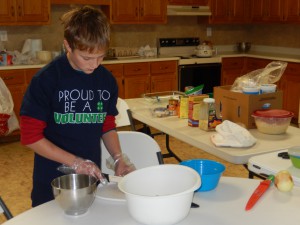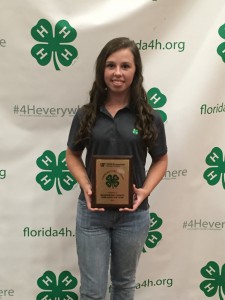MLK Day of Service
Did you know that MLK Day is the only federal holiday designated by US Congress as a national day of service? Instead of a “day off” from school or work, Americans are encouraged to spend the day serving others. Coretta Scott King said:
“The greatest birthday gift my husband could receive is if people of all racial and ethnic backgrounds celebrated the holiday by performing individual acts of kindness through service to others.” MLK Day is always the third Monday of January.
In honor of Dr. Martin Luther King, Jr.’s legacy of service, this blog post brings together several resources to support 4-H service projects to live out our motto, “make the best better.”
What is the Difference Between Service Learning and Community Service?
Service to the community is one of the pillars of 4-H membership. Our pledge includes “My HANDS to larger service.” All 4-H members and clubs are encouraged to plan and execute at least one service project each year. Community service and service learning are often confused. Community service can be court-mandated and sometimes has a negative connotation. However, the biggest difference between community service and service learning is that community service is usually a “one and done” activity where youth collect food, clothes, or other items for a local organization or pick up litter. There is nothing wrong with these types of activities, but youth usually have little input on them, and they are one-time events. This is perfect for younger youth. In contrast, service learning is a longer-term process where youth identify a community need, develop a proposal or plan to address that need, and often involve other community organizations or officials to take action. Service learning is a great way for older youth and teens to develop awareness and empathy. For more information about the differences between service learning and community service, check out our previous blog post.
Getting Youth Involved in Service to Others
Service to others is a huge part of the 4-H Model. Not only is it part of our pledge, Generosity is one of the 4-H Essential Elements, and something we strive to integrate throughout our programming. 4-H Clubs are encourages to participate in at least one community service or service learning project each year- it one of many standards for club and individual members. If you are not familiar with standards of excellence, it is part of our 4-H Awards and Recognition Program. To learn more, check out this previous blog post or be sure to attend our workshop on Awards and Recognition next weekend at our Northwest 4-H Volunteer Forum.
Finally, there is a grant program to help clubs with service learning! It’s called 4-H Community Pride, and not only does this program provide funding for service learning, there is a comprehensive leader’s guide to help volunteers, youth, and parents plan, execute, and celebrate thier service learning.
Ideas to Kick Start Community Service or Service Learning
If you are in need of some fresh ideas for service learning, be sure to read “17 Ways to Kick Start Your Service Learning.” We will also offer a workshop on Service Learning during our Northwest 4-H Volunteer Forum next weekend in Destin, FL. Finally, during our upcoming Northwest 4-H Teen Retreat, youth will have the opportunity to participate in a service project our youth planning committee selected. They will be making teddy bears to give away at a summer camp for youth with disabilities.


